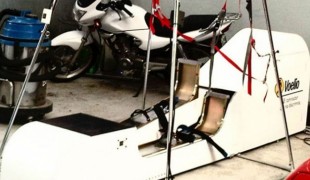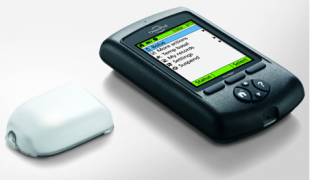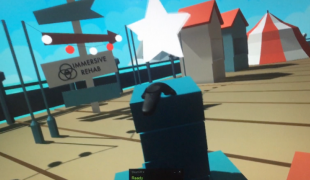- 6719
- 484
- 10
- 6
- 0
- Help Ukraine
About the solution
At just two years old, Anthony was diagnosed with a brain tumour, and after undergoing a surgery that successfully removed the tumour, he lost his vision. In beginning his road to recovery, Anthony and his family discovered that reintroducing basic life skills, such as feeding himself, were more challenging than anticipated.
Anthony’s therapist introduced him to a special spoon that made eating easier. However, after struggling to find the spoon anywhere, his mother reached out for answers on Facebook, and a friend of her father saw the post and felt the need to help.
Wayne, who is a US marine, said, “as a Marine, we don't leave anyone behind. I've never met Anthony but he is a remarkable little boy.”
After failing to find a spoon that fit Anthony’s liking, Wayne borrowed the spoon from his therapist, and took a number of measurements and pictures, and decided to use the information to try 3D printing at a local UPS store.
Through working extensively with a designer and franchisee, and despite facing a number of challenges such as finding Food and Drug Administration approved materials, Wayne was able to complete a perfect spoon for Anthony, which ended up also including a fork tool.
Wayne’s help was invaluable to Antony’s family, with his mother saying, "when I gave the spoon to Anthony it made a huge difference. I was having to sit and feed two kids at the same time so Anthony having a spoon where he could feed himself not only gave him independence and confidence but it also helped me so I don't have to sit and feed him myself".
Adapted from: http://bit.ly/2spyRK1
This solution shall not include mention to the use of drugs, chemicals or biologicals (including food); invasive devices; offensive, commercial or inherently dangerous content. This solution was not medically validated. Proceed with caution! If you have any doubts, please consult with a health professional.
DISCLAIMER: This story was written by someone who is not the author of the solution, therefore please be advised that, although it was written with the utmost respect for the innovation and the innovator, there can be some incorrect statements. If you find any errors please contact the patient Innovation team via info@patient-innovation.com
-
-
536
-
0
-
9315

Father creates walking aid for his son
WALKING: Walking
WALKING WITH A WALKING AID: Walking with a walking aid
CAREGIVING
Cervical spinal cord injury/Tetraplegia
Walking Aid (wheelchair/walker/crutches)
Restoring mobility
Promoting self-management
Preserving Organ Function
Rehabilitating After Stroke
Managing Neurological Disorders
Recovering from Traumatic Injuries
Maintaining Balance and Mobility
To improve Treatment/Therapy
Raise awareness
Caregiving Support
General and Family Medicine
Internal Medicine
Neurology
Pediatrics
Physical Medicine and Rehabilitation
Argentina
-
-
-
611
-
2
-
12704

OmniPod® - a wireless insulin pump
(SELF)-CARE: EATING: Eating independently.
CAREGIVING
(SELF)-CARE: EATING: Eating independently.
diabetes type 1
diabetes type 2
Gestational Diabetes
Body-Worn solutions (Clothing, accessories, shoes, sensors...)
Enhancing health literacy
Promoting self-management
Restoring heart health
Managing diabetes
Manage Medication
Preserving Organ Function
Promoting inclusivity and social integration
To implement a diagnostic tool
To improve Treatment/Therapy
Preventing (Vaccination, Protection, Falls, Research/Mapping)
Raise awareness
Caregiving Support
Endocrinology
General and Family Medicine
Pediatrics
United States
-
-
-
435
-
0
-
4774

Helping people affected by neurological conditions live more independent lives again with our digital therapies for neurorehabilitation.
CAREGIVING
(SELF)-CARE: EATING: Eating independently.
(SELF)-CARE: DRINKING: Drinking independently.
(SELF)-CARE: HYGIENE: Maintaining personal hygiene
BODY BALANCE: Maintaining body balance
Multiple Sclerosis
Spinal Cord and Nerve Root Disorders
Stroke
Assistive Technology access
3d Printed
Treatment/Surgical device
Website
Muscle cramps or spasms
Difficulty coordinating movements
Stiffness or rigidity (difficulty moving)
Muscle weakness
Anxiety
Fatigue
Cold hands or feet
Restoring mobility
Rehabilitating After Stroke
Managing Neurological Disorders
Recovering from Traumatic Injuries
To improve Treatment/Therapy
Cardiology
General and Family Medicine
Intensive Care Medicine
Neurology
Physical Medicine and Rehabilitation
United Kingdom
-
 en
en